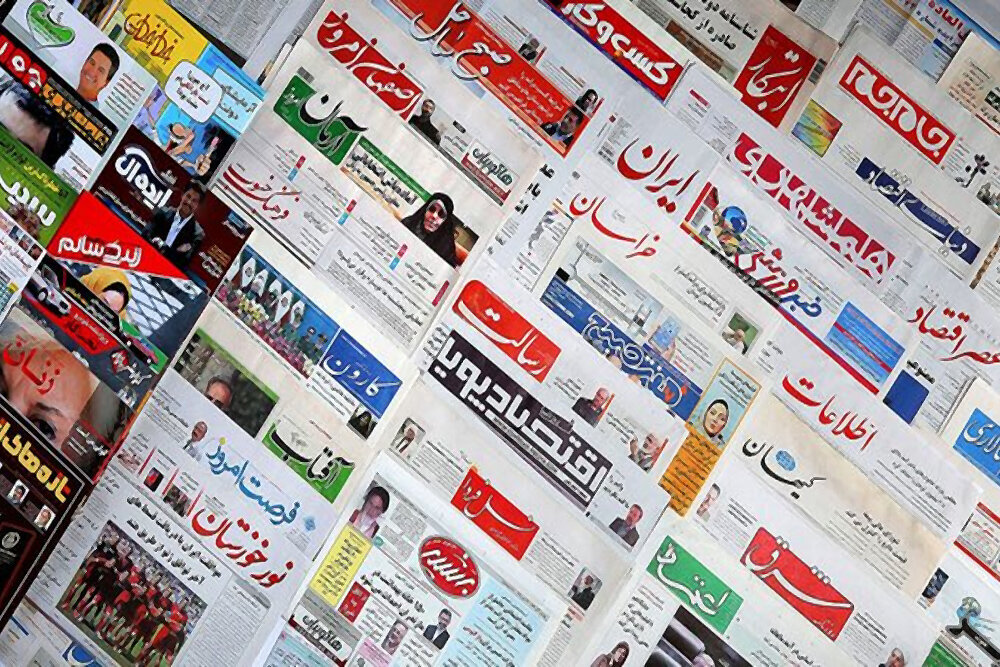Ahmadian is absolutely a soldier of the Leader

Ham Mihan devoted its headline to the appointment of Ali Akbar Ahmadian as the secretary of the Supreme National Security Council and conducted several interviews in this regard.
Mohammad Kosari, a member of the parliament, said: “Given his spirit in the imposed war, and academic knowledge that we know from General Ahmadian, we will see good results in the future, and this spirit will cause reforms in the Supreme National Security Council. This development should definitely be accompanied and coordinated with the head of the government. With the spirit that we know from General Ahmadian, there will definitely be reforms in the Supreme National Security Council.”
Shamkhani’s role in the agreement between Iran and Saudi Arabia has now increased concerns that his change may create new limitations on Iran’s relations with other countries.
Kosari emphasized: “These issues are the macro-policies of the system, and the secretary and head of the Supreme National Security Council implement them.” On General Ahmadian’s political tendencies, Kosari said: “He is completely a soldier of the jurisprudent.”
Shargh: Resignation of Shamkhani and power struggle
In an interview with Sadatian, a member of the Parliament’s National Security Committee, Shargh discussed Shamkhani’s resignation from the Supreme National Security Council. He said: “Most of the attacks on Shamkhani from the Jebhe-ye Paydari (Front of Stability of the Islamic Revolution) were not related to the issue of his family and mostly revolved around his performance in the face of protests, meetings with reformists and something like this. So here, the “power struggle after unifying the executive power" causes such changes and reforms. However, some radical groups in the new era are trying to take over all levels and dimensions of power, from economic to political, diplomatic and security, especially since Shamkhani tried to resolve the regional relations in recent months in such a way that the foundations of the JCPOA revival are preserved. Although these actions are not done without the permission of the authorities, the Front of Stability did not welcome them, because they felt that some decision on the region and the JCPOA are being taken without their involvement. Even though in the issue of the revival of relations between Iran and Saudi Arabia and other issues related to regional foreign policy and the JCPOA, almost the Ministry of Foreign Affairs and (deputy foreign minister) Ali Bagheri Kani were kept in dark in the past months, and Shamkhani’s performance became more prominent.
Etemad: Diplomats should be researchers, not reporters
In a note, Etemad discussed the recent statements of the Leader among the group of diplomats and said: The Leader’s emphasis on identifying hidden layers in regional and global decisions and actions shows that he has a serious demand from diplomats that instead of being a reporter and act like them, be a researcher and convey the contents correctly to the center (capital) with correct understanding. Avoiding superficiality is one of the essentials of working as a diplomat. Some diplomats regularly write superficial reports and their reports to Tehran lack details and accurate understanding of the issue. Giving reports is desirable, but the content must be understood and this is more important.
Hamshahri: Criticism of the hijab bill
In its opinion piece, Hamshahri addressed the new hijab and chastity bill and criticized it. It wrote: In the text that is published on cyberspace as the new chastity and hijab bill that the government, the judicial system and the parliament have not yet published its official text, the laws and the regulations have undergone vast and alarming changes. If it is true, it will be an awful impact to the high dignity of the judicial system. The pillar of these changes is that the judicial authority of the country has totally decriminalized the violation of Islamic hijab until before it leads to complete removal of the hijab and made it a legal matter and prevents police from taking preventative actions against the criminals – even if they are completely without the hijab or are half naked, unless they are completely naked!
Iran: Raisi government diplomacy and trip to Jakarta
The Iran newspaper discussed President Raisi’s visit to Indonesia and wrote: Raisi’s visit is taking place upon the official invitation of the president of Indonesia, Joko Widodo, while almost 17 years have passed since the last official bilateral visit of the presidents of the two countries. Asian countries are one of the important areas in the foreign policy of the 13th government. What has made these countries important to the politicians is not just a focus on political aspect of such relationships, but it the use of political and diplomatic capacities in line with the country’s economic goals and interests. The previous government’s focus on restoring relations with the West just led to a clear reduction in the level of Iran’s relations with Asian actors.
Along with the idea that Iran’s foreign policy should be “offensive-defensive”, it caused the country to neglect development of relations with the countries that are called “peripheral countries” in international relations. Accordingly, not only the wishes of the 11th and 12th governments were not fulfilled by focusing on the policy of developing relations with the West, rather their political relations with large and small Asian countries were limited to trips that sometimes had no achievements. They even made many previous cooperation agreements to become irrelevant.
